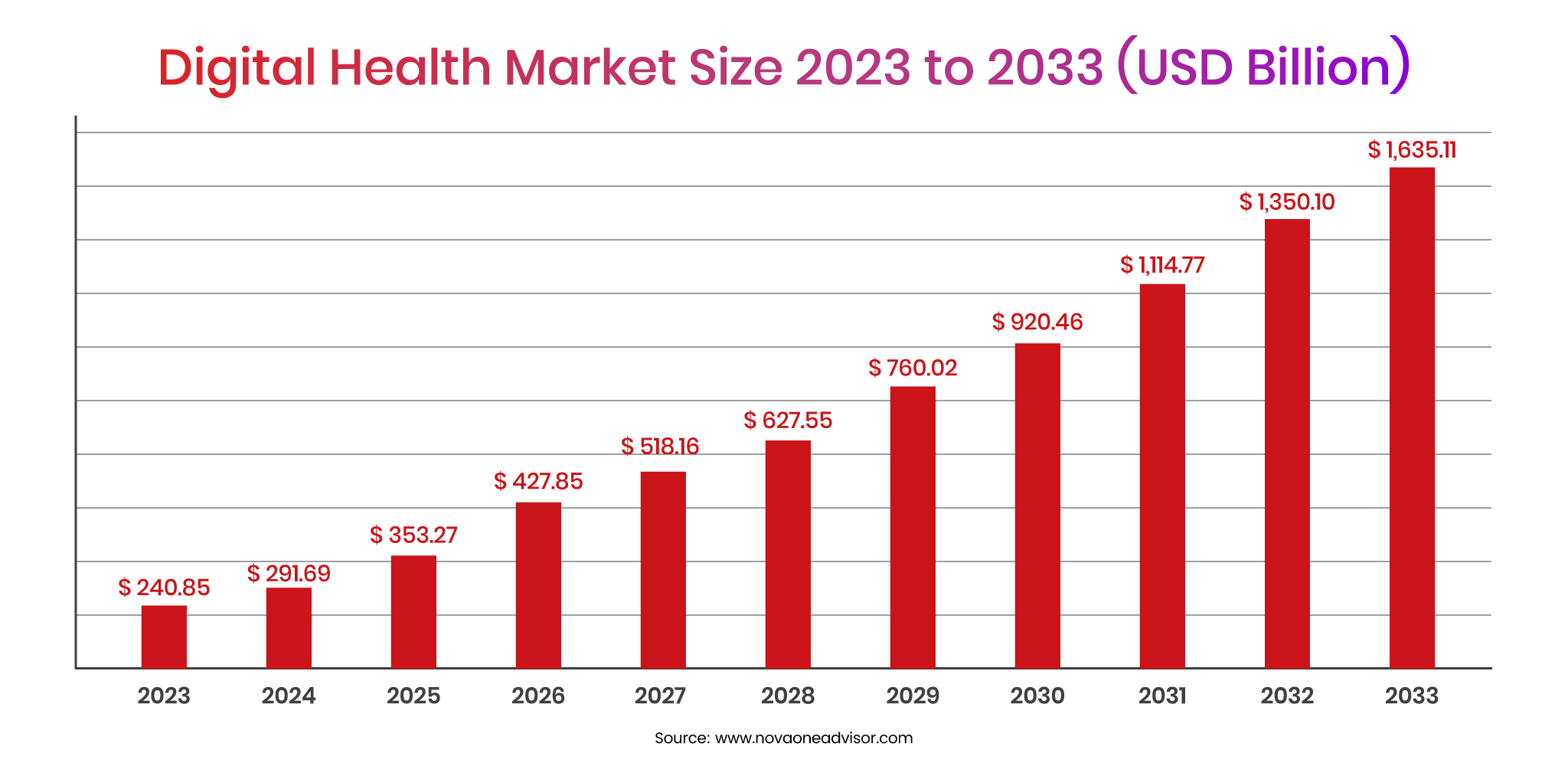Digital commerce in healthcare encompasses a wide range of services online, integrating strategies and technologies to deliver a personalized experience in online healthcare services. This includes telemedicine, online pharmacies, and digital platforms offering medical equipment and specialized medications. The integration of digital channels not only enhances patient interactions but also provides more accessible and efficient care options.
Online sales fit into this broader digital commerce ecosystem by enhancing customer experience and optimizing the buying journey, making it a crucial component of the overall digital strategy.
With the rise of telehealth services, patients can now consult with healthcare professionals without the need for in-person visits. This shift is driven by the increasing consumer demand for managing their health through technology, leading to a surge in personal health spending.
Understanding the nuances of digital commerce vs. traditional healthcare services is crucial for healthcare providers aiming to stay competitive in the digital commerce industry.
Importance of Digital Commerce for Healthcare Providers
Digital commerce is not just a trend but a strategic priority for healthcare providers. The increased consumer spending on personal care and higher expectations for online shopping are driving the growth of healthcare ecommerce. Adopting digital commerce platforms allows healthcare providers to improve access to medical advice, prescriptions, and essential products, particularly for underserved populations.
Digital platforms offer significant operational efficiencies, streamlining processes such as appointment scheduling, billing, and patient follow-up. Online sales contribute to these efficiencies by integrating various technologies that enhance the buying journey and patient engagement. Additionally, features like online pharmacies and subscription models for virtual healthcare services improve patient engagement by providing convenience and continuous access to healthcare services from home.

Digital Commerce Platforms in Healthcare
Digital commerce platforms in healthcare are revolutionizing how services are delivered and accessed. Prominent digital commerce companies are increasingly engaging in the healthcare sector, offering a significant opportunity for digital commerce. Comprehensive healthcare marketplaces can aggregate various services and medical equipment offerings in one location, providing a seamless experience for online shoppers.
These platforms improve patient engagement by offering around-the-clock access to health resources and direct communication with providers. Online sales are facilitated by these digital commerce platforms, improving patient engagement and satisfaction. Tools that unify interactions and offer straightforward navigation are essential for enhancing patient engagement and satisfaction.
Innovation is the foundation of successful digital commerce platforms, with technologies like mobile devices and social media ads playing a crucial role in establishing digital presence. A headless ecommerce architecture, which separates front-end from back-end commerce functionalities, offers flexibility, scalability, and compatibility with various front-end technologies. This approach allows healthcare providers to quickly adapt to changing market demands and improve the overall digital commerce experience for patients.

Digital Commerce Solutions
Product Information Management (PIM)
Managing extensive product catalogs in the healthcare sector requires a streamlined approach to ensure data accuracy, compliance, and consistency. PIM centralizes product information across multiple platforms, making it easier for healthcare providers, pharmaceutical companies, and medical suppliers to manage product details efficiently. It enhances searchability, reduces errors, and ensures that all product-related data remains up-to-date across e-commerce websites, marketplaces, and offline sales channels. By implementing PIM, businesses can offer a more structured and reliable shopping experience, improving customer trust and engagement.
Digital Asset Management (DAM)
A centralized repository for digital content is essential for healthcare brands managing large volumes of marketing materials, product images, videos, and regulatory documents. DAM enhances content organization by automating metadata tagging, ensuring quick retrieval and accessibility across multiple digital touchpoints. With seamless integration into CMS platforms like Drupal and Adobe Experience Manager (AEM), DAM ensures brand consistency and supports omnichannel strategies, allowing healthcare businesses to efficiently manage and distribute their digital assets while maintaining compliance with industry regulations.
Personalization
Creating personalized experiences in healthcare digital commerce enhances customer engagement and retention. AI-driven recommendation engines analyze user behavior, purchase history, and preferences to deliver customized product suggestions and tailored content. By implementing real-time personalization strategies, businesses can offer dynamic pricing, location-based offers, and personalized email marketing, ensuring that every customer interaction is relevant and impactful. Personalization helps improve conversion rates, strengthen customer relationships, and create a more user-centric digital commerce environment.
Omnichannel Commerce
Healthcare consumers expect seamless interactions across various digital and physical touchpoints, from e-commerce websites and mobile apps to in-store purchases and telehealth services. An effective omnichannel strategy integrates these platforms, allowing customers to transition effortlessly between channels while maintaining a unified experience. Real-time inventory synchronization, cross-platform user data, and a cohesive brand experience across digital storefronts and offline locations enhance customer satisfaction, improve engagement, and drive higher sales.
Product Content Experience
High-quality product content is crucial in healthcare e-commerce, where customers rely on detailed descriptions and visuals to make informed decisions. Interactive content, such as 3D product views, augmented reality (AR) demonstrations, and in-depth medical product specifications, creates a richer shopping experience. Enhancing product content with educational resources, comparison tools, and customer reviews builds trust and helps customers navigate complex healthcare purchases with confidence, ultimately increasing conversion rates and reducing product returns.
Customer Retention
Retaining customers in healthcare digital commerce requires a combination of personalized engagement, loyalty programs, and automated follow-up strategies. Businesses can enhance retention by implementing subscription-based services for medical supplies, AI-driven refill reminders, and exclusive member benefits. Targeted remarketing campaigns and predictive analytics help identify at-risk customers, allowing businesses to proactively re-engage them with tailored offers, relevant content, or personalized support. By prioritizing customer retention strategies, healthcare e-commerce brands can improve lifetime value and foster long-term loyalty.
Analytics & AI-Powered Insights
Data analytics plays a vital role in optimizing digital commerce strategies by providing real-time insights into customer behavior, sales trends, and operational performance. AI-driven predictive analytics enable healthcare brands to anticipate demand, optimize inventory management, and personalize marketing efforts. Businesses can leverage analytics to identify friction points in the customer journey, measure campaign effectiveness, and refine their pricing strategies. Advanced data visualization tools allow decision-makers to make informed choices, ultimately improving efficiency and revenue generation.
Marketing Operations & Automation
Efficient marketing operations drive digital commerce success by automating workflows, enhancing customer engagement, and improving lead conversion rates. AI-powered marketing automation tools help segment audiences, personalize outreach, and optimize campaign performance. Automated chatbots, CRM integrations, and triggered email sequences enhance customer interactions by providing timely support and relevant recommendations. By streamlining marketing processes, healthcare brands can improve efficiency, reduce manual effort, and ensure that their digital commerce efforts remain data-driven and impactful.
Data Security and Regulatory Compliance
Ensuring data security is critical in healthcare digital commerce due to the sensitivity of patient information. Investments in cybersecurity are crucial for healthcare providers to protect sensitive patient data during online transactions. Implementing encryption and secure payment gateways can safeguard patient information, converting data into a coded form accessible only with a decryption key.
Access control measures, such as role-based access and multi-factor authentication, are essential to prevent unauthorized access to sensitive patient data. Regular security audits help healthcare organizations identify vulnerabilities and ensure compliance with regulations like HIPAA. Training healthcare staff on cybersecurity best practices, including awareness of phishing and password security, is also crucial for preventing data breaches.
The importance of regulatory compliance in healthcare digital marketing cannot be overstated. Compliance with healthcare regulations such as HIPAA and FDA guidelines is necessary to maintain patient trust and confidentiality. With the rising number of breached healthcare records and ransomware attacks, healthcare providers must prioritize data security and regulatory compliance to protect patient information and ensure uninterrupted care.
Digital Marketing Strategies for Healthcare Providers
Effective digital marketing strategies are essential for healthcare providers to reach and engage their target audiences. These strategies can significantly drive online sales in healthcare ecommerce by optimizing the buying journey and enhancing customer experience. AI plays a significant role in automating marketing processes and providing predictive analytics, enhancing campaign effectiveness. Search engine optimization (SEO) and pay-per-click (PPC) advertising are crucial for improving visibility and driving cost-effective traffic to healthcare websites.
Mobile optimization is vital as a significant majority of patients use smartphones to interact with their healthcare providers. Content marketing that provides educational resources can enhance patient engagement and encourage more inquiries about services offered.
Personalized email marketing can effectively inform patients about new treatments and engage them by offering wellness advice, further building customer loyalty.
Summary
The integration of digital commerce in healthcare is revolutionizing how services are delivered and accessed. By leveraging innovative technologies and implementing effective digital marketing strategies, healthcare providers can enhance patient engagement, ensure data security, and stay competitive in the evolving healthcare market. Online sales play a crucial role in enhancing digital commerce by optimizing the buying journey and improving the overall customer experience.
As we look to the future, trends like sustainable digital commerce and voice commerce will continue to shape the industry, offering new opportunities for growth and innovation. Healthcare providers must stay ahead of these trends and continuously adapt their strategies to meet patient expectations and improve healthcare outcomes.









































